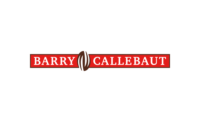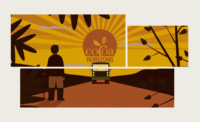Prova and Barry Callebaut, supported by the Sustainable Trade Initiative (IDH), have teamed up to support vanilla farmers in introducing cocoa trees on their farm.
Training will be provided to improve the productivity and quality of both vanilla and cocoa while also funding and supporting local communities through social, health, and education programs.
As part of Barry Callebaut's Forever Chocolate strategy to make sustainable chocolate the norm, it is committed to having 100% sustainable ingredients in all its products by 2025. The project started in 2016 in Bemanevika, Madagascar. Despite the challenges created by tropical cyclone Enawo in 2017, volatile vanilla prices, and a global pandemic, the company's collaboration with Prova has exceeded the company's expectations and a second phase is being launched.
"This long-term project has shown the value of partnering with our main vanilla supplier to achieve positive change in a challenging environment," said Massimo Selmo, chief procurement officer, Barry Callebaut. "By combining our expertise in sustainability and cocoa we enabled farmers to diversify and therefore grow their income. The success of the past five years has prepared the ground for further expansion of both our partnership and of our commitment to sustainable vanilla and cocoa sourcing from Madagascar."
Lifestyle improvements for farmers
Final audit interviews with participating farmers, the majority with no previous experience in cocoa cultivation, underline the case for continuation. Farmer Georginot Lorissa (age 41) is still actively supported on the ground by his 73-year-old father. By December 2021, his family was producing 10% of the diversification program’s total cocoa volume. For this family and many others, the future-oriented scope of the engagement was vital. “We see you take us seriously,” Lorissa explains.
On another property, farmer Alexis Bezandry (age 64) reflects on his personal motivation for agricultural diversity: “I sent my children to school with the dream that one day they could become a doctor or astronaut if they wished. Now they are both in college."
Concrete, project-funded measures enabling the lifestyle improvements of the farmers have included the construction of a water well and a technical school for young graduates and financial support for two medical clinics. School meals, scholars’ kits, plus a static and mobile library, have also been provided. The strong engagement in health and education within the farming communities had positively impacted over 25,000 people by May 2022.
Income stability from cocoa diversification
Initially it was hard for the vanilla farmers to visualize that crop diversification could translate into income stability. As the cooperation progressed, and their knowledge and experience grew, this possibility became very real. Cultivating cocoa alongside their vanilla means they can harvest (and sell) cocoa beans every two weeks and secure a monthly income all year round. This is a welcome complement to the annual harvest of vanilla, particularly during the five-month period when they are typically without an income. To date, over 40% of the farmers involved are successfully growing and selling cocoa, some are already forming a cocoa cooperative and a centralized cocoa fermentation center has been built.
Since its start in 2016, the sustainability initiative has supported 700 vanilla farmers. The crop diversification has been complemented by vital training in good agricultural practices (GAP), as well as in financial resilience and independence.
Uncompromising focus on quality
An uncompromising focus on quality has been a key success factor. This was largely enabled by the reinforcement and development of GAP. At the beginning there had been very little training on these practices. In 2021 over 4,000 individualized sessions, addressing growing crops efficiently and sustainably, took place. The final audit showed that 99% of participating farmers had completed the training. A total of 70% of the farmers have now received a quality premium on the vanilla they sell.
Products sold into Barry Callebaut supply chain
In March 2018, the first 100% traceable vanilla from the initiative was delivered to Barry Callebaut factories in Belgium, Italy, and France. Since 2020, all vanilla extract used in Barry Callebaut’s European factories has been 100% sustainable. In addition, in 2021, the Madagascan cocoa stemming from the income diversification project was sold into the Barry Callebaut supply chain for the first time.
Expansion of partnership and commitment to sustainability
The project’s second phase will continue the GAP training for vanilla and cocoa and there will be more community-based social initiatives. A second fermentation center, located very close to Lorissa’s home, is due for completion in 2023. Further diversification possibilities are under evaluation, such as patchouli, cattle, poultry, and aquaculture, for areas where the soil does not lend itself to cocoa.
At the end of April 2022, a knowledge exchange program stemming from the first phase was kicked off between Madagascar and Côte d’Ivoire. On a strategic level, another pillar of action related to climate, including understanding deforestation, mapping plants, monitoring environmental change, biodiversity, and food and water conservation, has been defined by Barry Callebaut and supported by Prova.







